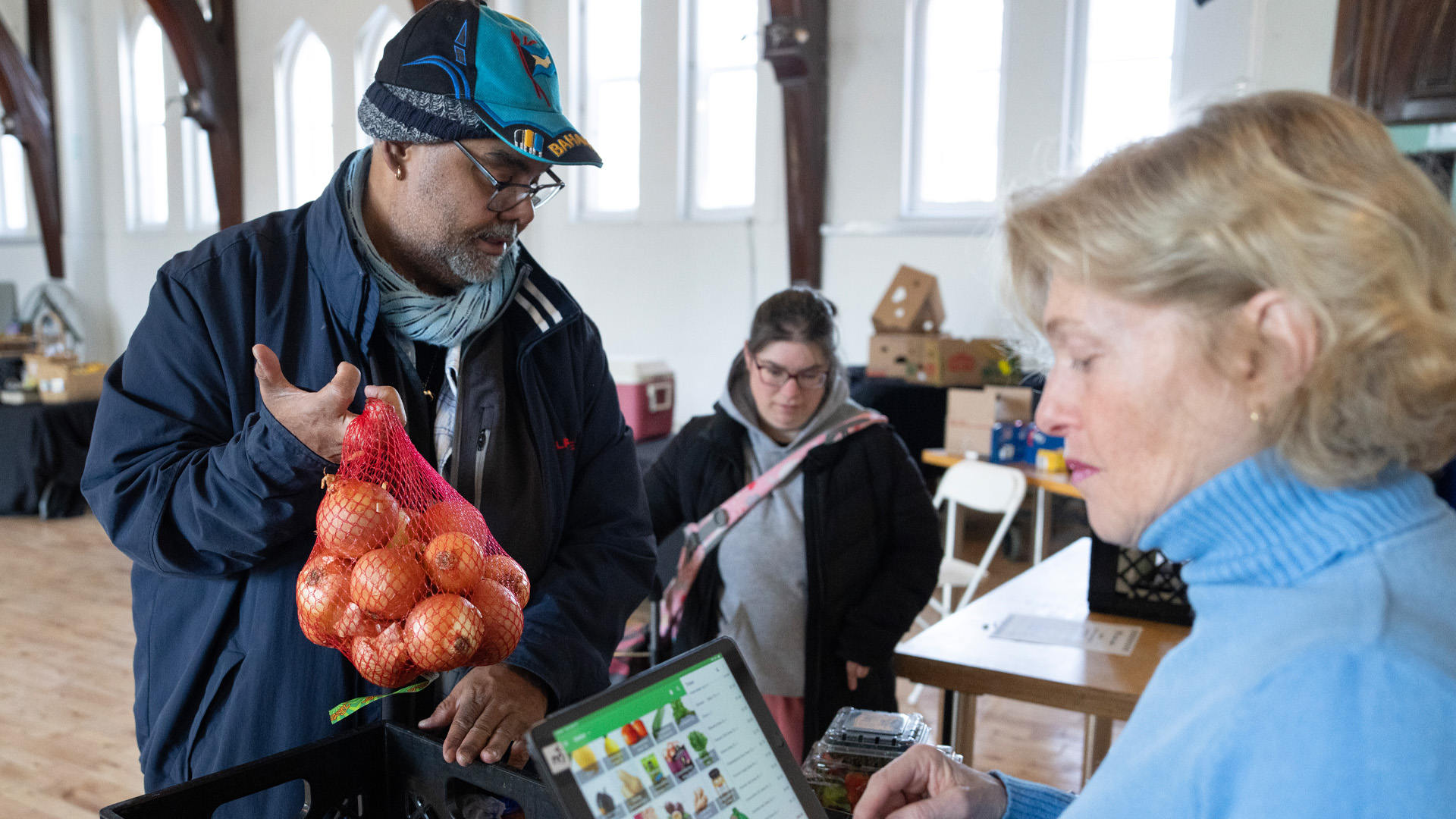
Low-income Canadians are struggling and urgently need more support.
This is not news. Provincial welfare benefits, which provide money to buy food and other necessities, have been below Canada’s official poverty line since at least 2013. But the situation has become considerably worse because of the post-pandemic surge in inflation.
In Ontario, where the official poverty line was $27,631 in 2022, a single working-age adult received $10,253 in welfare income. Welfare incomes were the lowest in Alberta, Nova Scotia and New Brunswick.
Research shows that targeted cash transfers can reduce poverty rates and food insecurity as well as improve access to basic needs. Governments have made considerable headway in bringing down poverty rates among seniors and children because of programs such as old age security, the guaranteed income supplement and the Canada child benefit.
But some groups are slipping through the cracks. Low-income rates remain high among single parents and single working-age adults without children.
My research indicates the fastest and most efficient way of making a meaningful dent in low-income rates is increasing the GST/HST credit for working-age adults and their children.
That would also help with growing food insecurity. In 2022, 18 per cent of Canadians lacked stable access to sufficient food, up from 16 per cent in 2021 and 17 per cent in 2019. More than 40 per cent of these families were led by single mothers while more than one-third of Black and Indigenous families were food-insecure.
Visits to food banks have also been on the rise. Food Banks Canada recorded almost two million visits across the country in March 2023, the latest month for which data is available. That’s up 32 per cent from the same time in 2022 and more than 78 per cent from 2019. Single working-age adults accounted for 44 per cent of users, one of the largest subsets of visitors.
These are troubling trends. To bring down grocery prices, the federal government has announced measures to spur competition among Canada’s major grocery retailers, but these efforts on their own are unlikely to have a substantial impact.
What’s more, the causes of food insecurity extend beyond grocery prices. The steep rise in housing costs, interest rates, gas and transportation are also squeezing family budgets. Many households are forced to choose between putting food on the table and paying the rent. Food is often what gets cut.
Research shows that income support is the best way to reduce food insecurity. The Affordability Action Council, a non-partisan group of policy experts and community leaders, asked me to research and assess the most effective and cost-efficient way to increase federal income support for low-income households.
I examined possible reforms to existing cash-transfer programs including the goods and services tax/harmonized sales tax credit, the Canada child benefit and the Canada workers benefit because these reforms can be implemented faster than designing a new benefit.
I concluded that the federal government should expand the existing GST/HST credit for working-age adults and their children.
The GST/HST credit is a broadly based benefit that reaches all family types, including working-age single adults and single-parent families, and is well-targeted to low-income households. The Canada child benefit goes only to families with children and the Canada workers benefit goes only to those with low levels of employment income.
However, the existing GST/HST credit is modest. It provides a base benefit of $325 a year per adult and $171 a year per child. Single adults receive an additional $171 a year phased-in for income over $10,544.
Overall, single adults receive a maximum of $496 a year and couples with no children receive a maximum of $650 a year. Single parents with one child, whose benefit is calculated as if they are a couple with one child, and couples with one child both receive a maximum of $821 a year.
I recommend that the federal government adopt one of two options: provide a credit of either $100 a month per working-age adult, spread evenly over low- and middle-income households, or $150 a month to those in deep poverty. Both options would reach about 10 million households and add between $10 billion and $11 billion to what the government spends on the benefit.
I don’t recommend extending the top-up to people who are 65 years old and older because they are less likely to be low-income or to experience food insecurity. However, they would continue to receive the same amount as now.
I also recommend that the expanded credit be distributed monthly rather than quarterly as now. That would spread the payments evenly throughout the year and give recipients more stability to cover day-to-day expenses.
Regardless of the cash-transfer method chosen, some people who would be eligible to receive the proposed benefit wouldn’t get it. This is because income supports are delivered by the Canada Revenue Agency and therefore go only to people who file tax returns. Up to 12 per cent of Canadians don’t file a return.
Non-filers are more likely to be people living in poverty, Indigenous Peoples (especially mothers), people experiencing homelessness and social assistance recipients – the very people who require the most support.
In the 2023 budget, the federal government announced that it would pilot an automatic tax-filing service for low-income and fixed-income Canadians who don’t file a return. The government has since expanded a more modest phone tax-filing system but has not implemented the automatic service. It should move ahead with the promised reform as soon as possible.
The cost-of-living crisis for social-assistance recipients
Policy Options podcast | An all-in approach to solving Canada’s affordability and climate crises
Based on my analysis, the Affordability Action Council recommended in a report released in December 2023 that the federal government restructure and expand the GST/HST credit and rename it the grocery and essentials benefit.
The proposed benefit would build on the federal government’s one-time grocery rebate implemented in 2023. The option selected by the council would give $150 a month per adult ($1,800 a year) and $50 per child ($600 a year) to the lowest-income households.
The top-up is unlikely to contribute to inflation because any additional income support that low-income families receive is likely to go to purchasing food and other necessities rather than luxury items.
Even so, the lowest-income households shouldn’t be expected to bear the burden of fighting inflation. Everyone deserves to have the means to put food on the table and to pay the rent.
The federal government recently announced that it will spend $1 billion over five years to launch a national school food program, which is expected to deliver meals to an additional 400,000 children a year starting in 2024-25. The program is a step in the right direction, but more action is needed.
To make a meaningful dent in low-income rates and rising rates of food insecurity, Canada needs a more generous targeted cash-transfer program. Expanding the GST/HST credit is the fastest and most efficient way of doing that.









